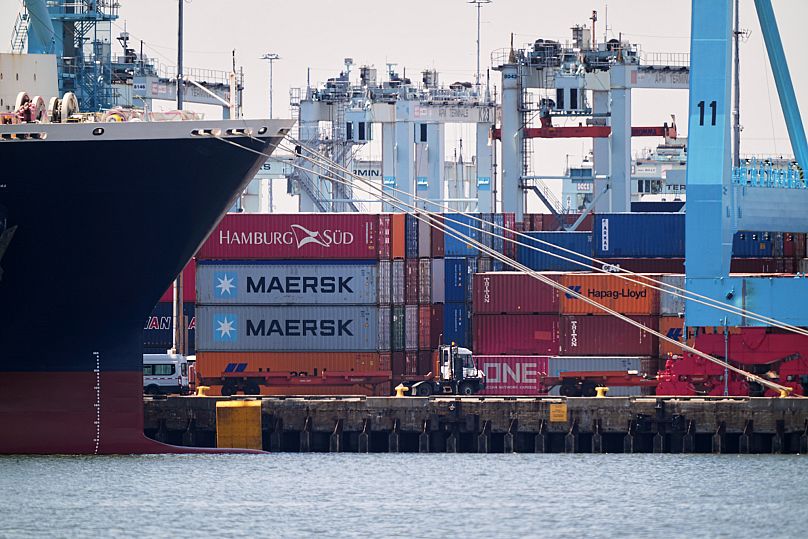Explosive Deal: Trump Secures 10% US Stake in Major Chipmaker Intel

President Donald Trump on Friday announced that the U.S. government has secured a nearly 10% equity stake in the struggling Silicon Valley pioneer, Intel. This extraordinary intervention by the White House into corporate America was completed just weeks after Trump had publicly criticized Intel's CEO, Lip-Bu Tan, as a conflicted leader unfit for his role. Trump declared in a post, “The United States of America now fully owns and controls 10% of INTEL, a Great American Company that has an even more incredible future.”
The U.S. government acquired this stake through the conversion of approximately $8.9 billion in previously issued funds and pledges into equity. Specifically, it involved purchasing 433.3 million shares of non-voting stock at $20.47 apiece. This price represented a significant discount from Friday's closing price of $24.80, immediately giving the U.S. government a paper gain of $1.9 billion. The funding for this equity conversion primarily stemmed from $5.7 billion in unpaid grants designated for Intel under the Biden-era CHIPS and Science Act, a program designed to foster domestic semiconductor manufacturing, alongside an additional $3.2 billion from another initiative known as the Secure Enclave program.
This remarkable turn of events places the U.S. government as one of Intel's largest shareholders at a critical juncture for the Santa Clara, California-based company. Intel is currently in the process of shedding more than 20,000 workers as part of its latest effort to recover from years of missteps and has faced substantial financial challenges, including losing over $22 billion since the end of 2023 and reporting an annual loss of $18.8 billion in 2024. Its market value, currently around $108 billion, pales in comparison to the chip industry leader, Nvidia, which is valued at $4.3 trillion.
Intel’s current CEO, Lip-Bu Tan, who assumed the position in March, had initially found himself on shaky ground earlier this month. Lawmakers raised national security concerns regarding his past investments in Chinese companies while he was a venture capitalist. Trump capitalized on these concerns in an August 7 post, demanding Tan's resignation. However, the situation dramatically shifted after the Malaysian-born Tan publicly professed his allegiance to the U.S. in a letter to Intel employees and met with President Trump at the White House, culminating in the equity deal. Following this, Trump praised Tan as a “highly respected” CEO, and Tan, in turn, applauded Trump for “driving historic investments in a vital industry,” vowing to reward the administration's faith in Intel.
The government's stake is intended to be a passive ownership, meaning it does not include a board seat for the U.S. government, and the shares are non-voting. Intel specified that the government would generally be required to vote with Intel's board on matters requiring shareholder approval, with certain undisclosed exceptions. Additionally, the deal includes a five-year warrant at $20 a share for an additional 5% of Intel stock, which the U.S. government can exercise if Intel loses control of its foundry business, its contract chip manufacturing unit. Analysts suggest that this federal backing could provide Intel with crucial breathing room to revive its loss-making foundry business, which needs to catch up technologically with competitors like TSMC to attract more customers.
Critics of the deal, however, view it as a troubling cross-pollination between the public and private sectors, potentially harming the tech industry. Scott Lincicome, vice president of general economics for the Cato Institute, labeled it a “horrendous move” that could lead to U.S. companies feeling pressured to purchase potentially inferior chips from Intel to curry favor with the Trump administration. Nancy Tengler, CEO of Laffer Tengler Investments, questioned the benefit to American taxpayers and the chip industry, warning against government interference in private enterprise. She echoed concerns about Trump's potential to meddle in Intel's business or fixate on its stock price.
While rare, government intervention as a significant shareholder is not unprecedented in U.S. history; a notable example is the nearly $50 billion injection into General Motors during the 2008 Great Recession, which resulted in a $10 billion loss for the government upon the sale of its shares. This move by the Trump administration aligns with its broader push to bolster domestic production and lessen the country's dependence on overseas manufacturing, particularly to maintain a technological lead over China in the race for artificial intelligence. Even prior to this Intel deal, the administration had leveraged its power over major chip companies, such as requiring Nvidia and Advanced Micro Devices to pay a 15% commission on their chip sales in China in exchange for export licenses.
Recommended Articles
US Secures Major Intel Stake: Trump's Bold Corporate Move Sends Shockwaves

President Donald Trump announced the U.S. government has acquired an approximately 10% equity stake in the struggling ch...
Washington Gridlock: Federal Shutdown Looms, Layoffs Feared as Blame Game Intensifies

The U.S. government entered a shutdown as Congress failed to pass a funding bill, leading to imminent federal worker lay...
Trump Adviser's ICE Threat at Bad Bunny's Super Bowl Performance Draws Jay-Z's Fierce Defense

Bad Bunny's selection as the 2026 Super Bowl Halftime Show headliner has sparked political controversy, with a Trump adm...
US Government SHUTS DOWN: Trump Eyes Cuts, Europe Watches Anxiously

The US government has shut down amidst a heated political deadlock over healthcare, with Democrats and Republicans clash...
Breaking: Trump's Administration Strikes Secret Deal with Harvard!

President Donald Trump announced a potential deal to end a contentious standoff with Harvard University over federal fun...
You may also like...
Liverpool Crisis? Reds Face Scrutiny After Consecutive Defeats

Liverpool faces scrutiny after two straight losses, with BBC Sport expert Chris Sutton highlighting their defensive vuln...
Man Utd Managerial Shake-Up Looms: Amorim Speculation Ignites Southgate Concerns

Manchester United faces a managerial dilemma as Ruben Amorim's position comes under scrutiny amidst a dire start to the ...
Bone Lake: Twisted Thriller Sparks Critical Debate on Erotic Horror

Mercedes Bryce Morgan's <em>Bone Lake</em> explores the 'sexy horror' genre, blending psychological manipulation and bla...
Country Power Couple Kane & Katelyn Brown Land Lifetime Christmas Film Deal Based on Hit Song!

Country music stars Kane and Katelyn Brown are making their debut as television executive producers for Lifetime's holid...
Mariah Carey Breaks Silence On Eminem Feud & ‘8 Mile’ Rumors!

Mariah Carey recently discussed her long-standing feud with Eminem, confirming rumors that he once asked her to play his...
Coronation Street Shocker: Beloved Star Sally Ann Matthews Bids Farewell to Soap

Coronation Street bids farewell to two prominent stars as Sally Ann Matthews makes an emotional exit as Jenny Connor aft...
Tems Shatters Records: First Nigerian Female Artist to Hit 10 Million US Units!

Tems has made history as the first female Nigerian artist to sell over 10 million units of a single in the U.S. with her...
Autumn's Hottest High Street Bags Revealed: Top Trends Starting from Just £20!

For Autumn/Winter 2025, bags transcend their functional role to become the main event in fashion, with a diverse array o...